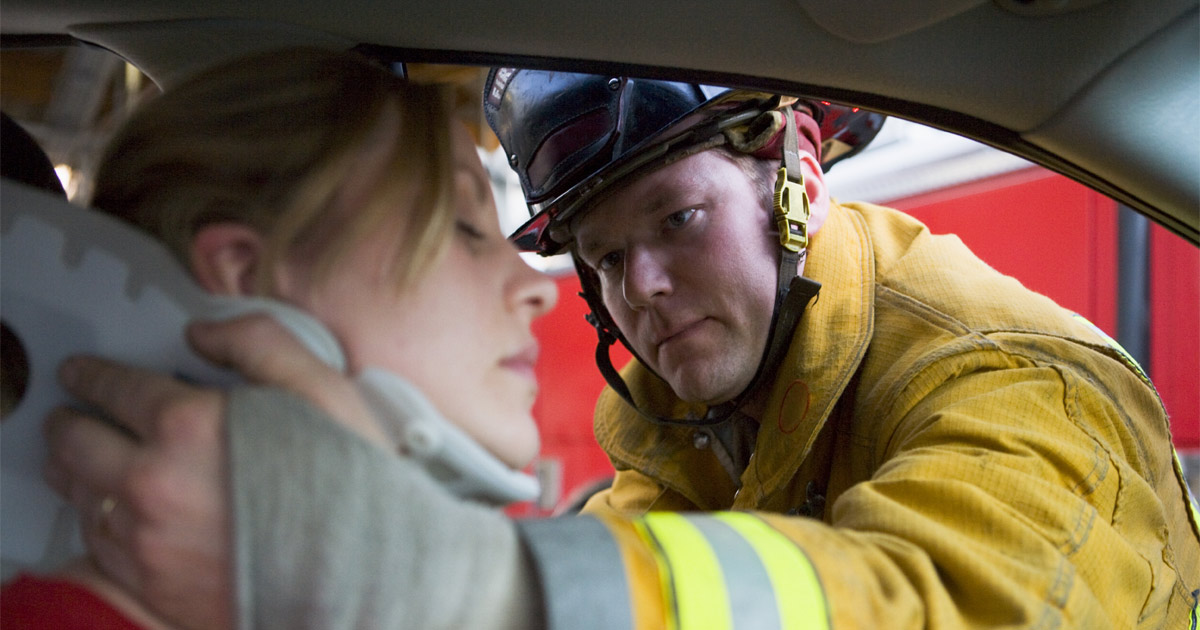People experience medical emergencies daily at the most inopportune times, even while driving. Although medical emergencies during driving are rare events and account for only 1.3 percent of all automobile crashes, they tend to be serious accidents, leaving behind devastating injuries and damage.
Medical emergencies, ranging from sudden cardiac events and seizures to diabetic crises and strokes, can strike without warning. When such emergencies happen while driving, the consequences can be devastating. Drivers experiencing a medical crisis may lose control of their vehicles, leading to collisions, injuries, and sometimes even fatalities.
So, who is liable for the injuries and damages should a medical emergency cause a car accident? For drivers who have suffered a medical event, many states recognize a “Sudden Medical Emergency” or “Act of God” defense, which states:
- The driver could not entirely be at fault because the medical emergency caused the car accident.
- This defense can only apply if the person who suffered the medical emergency responded similarly as a “reasonable person” would.
- Also, the defense would apply if the emergency was unforeseeable.
- It must also be proven that the sudden medical emergency caused the driver to be physically incapacitated and that it caused the driver to lose control of the vehicle.
- A sudden physical incapacity must not just be an illness but renders the driver unable to respond to their medical event to avoid an accident.
Who Cannot Use the Sudden Medical Emergency Defense?
Drivers who suffered a medical emergency but cannot use the “sudden medical emergency” defense include:
- Drivers who knew they had a medical condition before the accident occurred.
- Drivers whose physician or provider advised not to drive because of a specific medical condition.
Certain medical conditions that can cause an emergency while driving include:
- Cardiac events: Heart attacks and other cardiac events are among the most common medical emergencies that can lead to car accidents. The sudden onset of chest pain, shortness of breath, or dizziness can hinder a driver, impairing their ability to operate a vehicle safely. In these situations, drivers may lose consciousness, resulting in uncontrolled acceleration, veering off the road, or colliding with other cars.
- Seizures: For individuals with a history of seizures, an episode while driving can have catastrophic consequences. Seizures can cause sudden loss of control over bodily functions, leading to erratic driving behavior and a heightened risk of collisions. Despite medications and other management strategies, the unpredictability of seizures poses a constant threat to both the affected driver and others sharing the road.
- Diabetic crises: People with diabetes are vulnerable to experiencing sudden drops or spikes in blood sugar levels, which can lead to impaired cognitive function and motor skills. A diabetic crisis while driving can result in confusion, disorientation, or loss of consciousness. These impairments significantly increase the likelihood of accidents as drivers struggle to maintain control of their vehicles.
- Strokes: Strokes, characterized by the sudden interruption of blood flow to the brain, can cause a range of impairments such as confusion, paralysis, or loss of consciousness. When a stroke occurs while driving, the consequences can be dire. A driver experiencing a stroke may be unable to react to traffic signals, maintain proper lane control, or make timely decisions, putting themselves and others at significant risk.
Sudden Medical Emergencies in New Jersey
New Jersey is a state that follows “no-fault” insurance rules, which means that you would submit a claim with your own insurance company to receive compensation, regardless of who is liable for the accident. So, for instance, even if your car accident were caused by someone who suffered a medical emergency, you generally would still contact your insurance company for compensation.
However, when injuries and damages are severe and above a policy limit, an injured driver can submit a claim to the at-fault driver’s insurance company. But, in this case, proving liability in a sudden medical emergency is vital to receive compensation.
An Atlantic City Car Accident Lawyer at D’Amato Law Firm Will Protect Your Rights
If you need legal assistance after a crash, speak with an Atlantic City car accident lawyer at D’Amato Law Firm. Call 609-926-3300 or fill out our online form for a free consultation. Located in Egg Harbor Township, New Jersey, we proudly serve clients in South Jersey, including Atlantic City, Linwood, Galloway Township, Cape May, Vineland, Millville, Bridgeton, Ocean City, and Woodbury.


